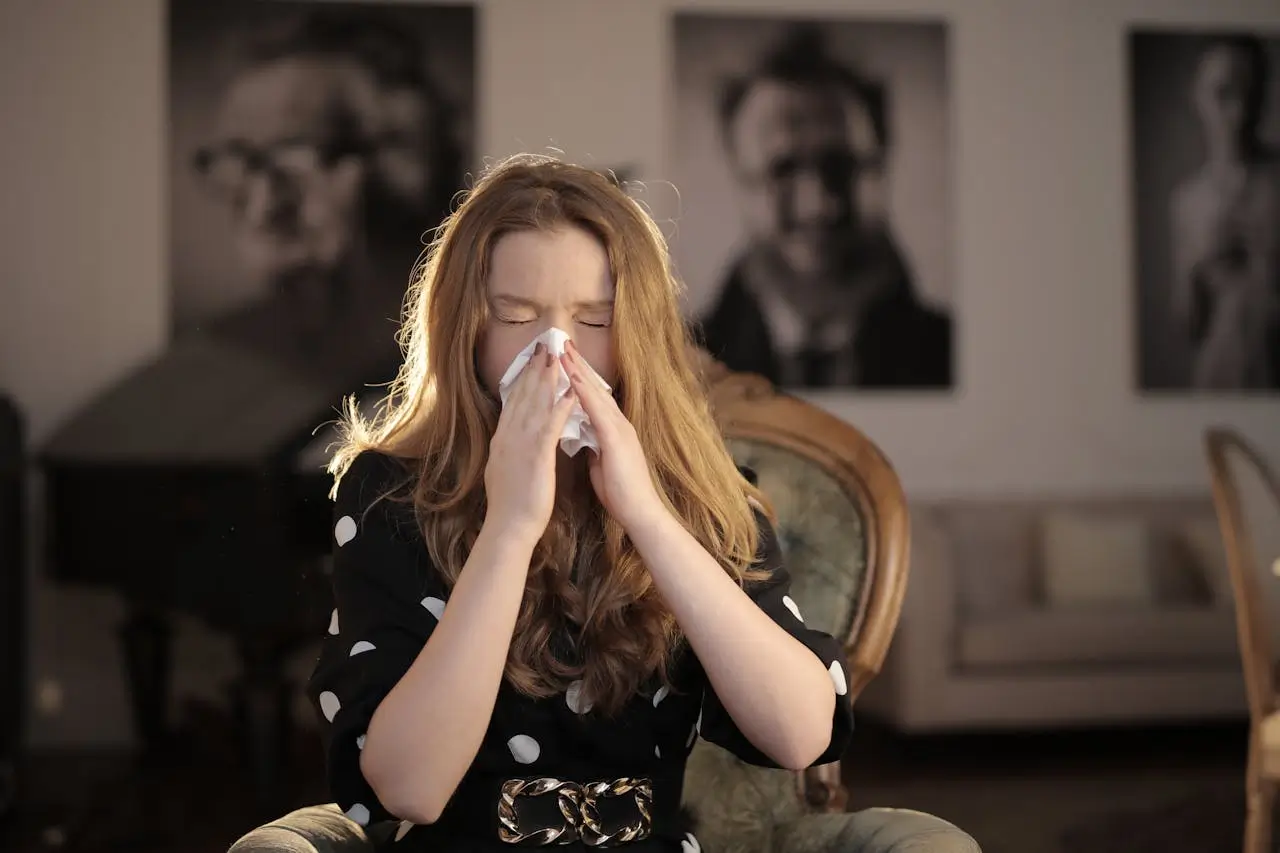Opening Up About Sexual Dysfunction: What You Need to Know

Sexual dysfunction, a problem that can occur during any phase of the sexual response cycle—excitement, plateau, orgasm, and resolution—prevents individuals from achieving satisfaction from sexual activity. This condition encompasses a range of issues, including desire disorders, arousal disorders, orgasm disorders, and pain disorders, such as painful intercourse, impacting both men and women. It is a common issue, estimated to affect approximately 43% of women and 31% of men, with incidents often rising after the age of 40, frequently related to hormonal imbalances, erectile dysfunction, or menopause.
Treatment and management of sexual dysfunction vary, including options like psychotherapy for psychological causes, medication for erectile dysfunction and premature ejaculation, or surgery for conditions like Peyronie’s disease. This article will explore the nature of sexual dysfunction, its causes, including conditions like genital herpes, its effect on personal relationships and self-esteem, and the available treatments. Creating an open dialogue around this sensitive topic is crucial for both understanding and managing the impacts of sexual dysfunction.
Understanding Sexual Dysfunction
Sexual dysfunction encompasses a variety of challenges that individuals may face, impacting their ability to engage in or derive satisfaction from sexual activities. This condition can significantly affect one’s quality of life, making it a crucial area of understanding. Here’s a breakdown of the common types of sexual dysfunctions and their characteristics:
- Desire Disorders: Characterized by a diminished or absent sexual desire. This can manifest as a lack of interest in sexual activities or an indifference towards sexual thoughts or feelings.
- Arousal Disorders: Despite having the desire for sexual activity, individuals with arousal disorders may find it difficult to physically become aroused. This includes challenges with maintaining excitement throughout the sexual encounter.
- Orgasm Disorders: These disorders involve difficulties in achieving orgasm. Individuals may experience delayed orgasms or an inability to climax, which can lead to frustration and dissatisfaction with sexual activity.
- Pain Disorders: Experiencing pain during intercourse significantly affects one’s sexual experience. Conditions such as vulvodynia (pain in the vulva) and dyspareunia (painful intercourse) fall under this category.
Several factors contribute to sexual dysfunction, ranging from psychological to physical causes. Understanding these underlying factors is essential for addressing and managing the condition effectively:
- Psychological Factors: Stress, anxiety about sexual performance, and past sexual trauma can significantly impact sexual function. Mental health issues such as depression also play a critical role.
- Physical and Medical Conditions: Hormonal imbalances, chronic diseases (such as diabetes and heart disease), and certain medications can lead to sexual dysfunction. Conditions like erectile dysfunction and premature ejaculation are often related to these factors.
- Lifestyle Choices: The use of alcohol, tobacco, and recreational drugs can adversely affect sexual function. Additionally, relationship issues and communication problems with a partner can contribute to sexual dissatisfaction.
Treatment and management strategies for sexual dysfunction are diverse, depending on the underlying cause. It’s essential to approach treatment holistically, considering both physical and psychological aspects:
- Medical Interventions: For conditions like erectile dysfunction or hormonal imbalances, medications and other medical treatments can provide relief.
- Psychotherapy: Addressing psychological factors through therapy can help individuals and couples overcome barriers to a satisfying sexual life.
- Lifestyle Adjustments: Making healthy lifestyle choices, such as reducing alcohol intake and quitting smoking, can improve sexual function. Open communication with partners and seeking support can also play a vital role in managing sexual dysfunction.
Understanding sexual dysfunction is the first step toward addressing and managing this condition. By recognizing the types, causes, and treatment options, individuals can seek the help they need to improve their sexual health and overall well-being.
Common Causes of Sexual Dysfunction
Sexual dysfunction, a complex issue with multifaceted causes, can be broadly categorized into physical and psychological factors. Understanding these causes is crucial for addressing the underlying issues effectively.
Physical Causes of Sexual Dysfunction:
- Medical Conditions:
- Diabetes and heart and vascular diseases disrupt blood flow and nerve function, impacting sexual function.
- Neurological disorders, such as multiple sclerosis, can impair the brain’s ability to communicate with the reproductive system.
- Chronic diseases like kidney or liver failure also play a significant role.
- Hormonal Imbalances: Conditions affecting hormone levels, including low testosterone or estrogen, can directly influence libido and sexual performance.
- Medication Side Effects: A wide range of medications, including but not limited to:
- Antidepressants (e.g., SSRIs, Tricyclic antidepressants)
- Antihypertensive medications (e.g., Diuretics, Beta-blockers)
- Hormone therapies (e.g., Leuprolide, Goserelin)
- Non-prescription medications (e.g., some antihistamines and decongestants)
- Lifestyle Factors: Excessive alcohol use, substance abuse, and certain unhealthy habits can lead to sexual dysfunction.
Psychological Causes of Sexual Dysfunction:
- Emotional and Mental Health Issues: Stress, anxiety, depression, and feelings of guilt can significantly impact sexual desire and performance.
- Relationship Problems: Issues within a relationship, including poor communication and unresolved conflicts, can decrease sexual satisfaction.
- Past Sexual Trauma: A history of sexual abuse can lead to ongoing sexual dysfunction, affecting one’s ability to engage in and enjoy sexual activity.
Risk Factors:
- Gynecological Conditions: Certain conditions affecting women’s reproductive health, such as menopause, can lead to changes in genital tissues and sexual responsiveness.
- Surgical Procedures: Operations, especially those involving the pelvic area, can cause nerve damage leading to sexual dysfunction.
- Socio-Psychological Stressors: Work-related stress, concerns about sexual performance, and body image issues are significant contributors.
By identifying the underlying cause, whether physical, psychological, or a combination of both, individuals can seek targeted treatments to alleviate sexual dysfunction.
Impact on Relationships and Self-Esteem
Sexual dysfunction not only affects individuals on a personal level but also has a profound impact on relationships and self-esteem. The interconnectedness between sexual health and relational dynamics is evident through several key observations:
- Relationship Dynamics:
- Communication and Satisfaction: Sexual dysfunction can lead to a breakdown in communication between partners, often resulting in decreased relationship satisfaction. The ability to maintain an open dialogue is crucial for navigating these challenges and can, in turn, strengthen the bond between partners.
- Emotional Support: Partners providing emotional support play a pivotal role in managing the psychological effects of sexual dysfunction. This support can foster a positive self-image and enhance relationship quality.
- Self-Esteem and Confidence:
- Psychosocial Impact: Individuals dealing with sexual dysfunction often experience a decline in self-esteem and confidence. This is particularly noticeable in men with erectile dysfunction (ED), where treatment with sildenafil citrate has been shown to substantially improve self-esteem and confidence.
- Correlation with Treatment Success: Improvements in self-esteem and confidence are closely linked to the success of sexual dysfunction treatments. Effective management of the condition can lead to better mental health and overall well-being.
- Treatment and Coping Strategies:
- Professional Help: Seeking therapy or medication can significantly improve sexual function and, by extension, relationship quality. Couples counseling, in particular, offers strategies for managing sexual dysfunction and improving communication.
- Lifestyle and Relationship Counseling: A combination of medical interventions, lifestyle changes, and relationship counseling is often necessary to address sexual dysfunction comprehensively. These strategies not only aim to improve sexual health but also to enhance relationship dynamics and individual self-esteem.
Understanding the multifaceted impact of sexual dysfunction underscores the importance of addressing this issue holistically. By focusing on both the individual and relational aspects, it is possible to navigate the challenges posed by sexual dysfunction more effectively, leading to healthier relationships and increased self-confidence.
Treatment and Management Options
Navigating through the treatment and management options for sexual dysfunction requires a comprehensive understanding of the available strategies. These strategies are diverse, encompassing everything from medication and mechanical aids to psychotherapy and lifestyle adjustments. Here’s a breakdown of the primary treatment avenues:
- Medical Treatments:
- Hormone Therapy: Beneficial for those with hormone deficiencies. Men might use sildenafil, tadalafil, vardenafil, and avanafil for improved sexual function, while women might opt for estrogen and testosterone treatments.
- Mechanical Aids: Vacuum devices and penile implants for men with erectile dysfunction, and dilators for women experiencing vaginal narrowing.
- Medication: Oral medications like Viagra, Levitra, and Cialis are commonly prescribed for erectile dysfunction.
- Non-Medical Treatments:
- Psychotherapy: Addresses sexual trauma, anxiety, fear, guilt, and body image issues.
- Sex Therapy and Education: Offers education about sexual behaviors and responses, and techniques like self-stimulation for arousal/orgasm issues.
- Lifestyle Changes: Quitting smoking, reducing alcohol consumption, incorporating physical activity, and addressing relationship issues can significantly impact sexual health.
- Supportive Strategies:
- Open Communication: Engaging in honest dialogue with your partner about needs and concerns.
- Professional Consultation: Visiting healthcare professionals at places like Planned Parenthood for a comprehensive evaluation, including physical exams, blood tests, and discussing medical history.
- Involvement of Partner: Encouraged to take your partner along for consultations to foster understanding and support.
The success of these treatment options heavily depends on identifying the root cause of the sexual dysfunction. A thorough evaluation by healthcare providers, involving a complete history of symptoms, a physical examination, and diagnostic tests, is essential for tailoring the most effective treatment plan. Whether the dysfunction stems from physical conditions, psychological factors, or a combination of both, a multi-faceted approach often yields the best results. Engaging in lifestyle modifications, exploring medical or non-medical treatments, and fostering open communication can collectively contribute to overcoming barriers to a healthy sex life.
Creating an Open Dialogue
Creating an open dialogue about sexual dysfunction, particularly erectile dysfunction (ED), is a crucial step toward understanding and managing this condition. Here’s how individuals and couples can approach these conversations effectively:
When and How to Discuss Sexual Dysfunction
- Timing and Setting: Choose a comfortable and private setting for the conversation. Avoid initiating discussions during or immediately after a sexual encounter to prevent additional stress or embarrassment.
- Expression and Listening: Start by expressing your feelings and concerns using “I” statements to avoid placing blame. Be prepared to listen actively to your partner’s feelings and perspectives.
Strategies for Couples
- Acknowledge the Issue Together:
- Understand that sexual dysfunction affects both partners.
- Recognize that it’s a common problem, with ED affecting about 30 million men in the U.S. alone.
- Open Communication:
- Casual Approach: Express concerns and feelings without causing alarm.
- Direct Approach: Directly address the issue, seeking solutions together.
- Support and Understanding:
- Show empathy and offer reassurance that ED is not a reflection of attraction or desire.
- Discuss how both partners can support each other through this journey.
Seeking Professional Help
- Doctor’s Appointment: If sexual problems persist, making an appointment with a doctor for evaluation is a critical step. A healthcare provider can diagnose the issue and suggest appropriate treatments.
- Therapy Options:
- Consider seeing a certified sex therapist for guidance in navigating sexual dysfunction.
- Couples counseling can help improve communication and address any relationship issues contributing to sexual dysfunction.
- Educational Resources: Reading books on sexual health together can provide valuable insights and strategies for improving sexual function.
By fostering an environment of openness and support, couples can navigate the challenges of sexual dysfunction together. Remember, seeking medical advice is essential, as ED can be related to health conditions or medications. Engaging in these discussions not only helps in identifying the underlying causes but also in overcoming the emotional and relational burdens associated with sexual dysfunction.
Conclusion
Throughout this exploration of sexual dysfunction, we’ve delved into its multifaceted nature, spanning from its physical and psychological causes to its profound impact on relationships and self-esteem. By understanding the various ways this issue manifests—be it through desire, arousal, orgasm, or pain disorders—and recognizing the complex interplay between mental health, lifestyle choices, and medical conditions, individuals are better equipped to seek suitable treatment. The importance of open dialogue, both with healthcare professionals and within personal relationships, cannot be overstressed as a foundational step towards managing and overcoming sexual dysfunction.
As we conclude, it’s crucial to reiterate that seeking help and embracing a holistic approach to treatment—incorporating medical intervention, psychological support, and lifestyle modifications—can significantly improve one’s quality of life. The collective efforts in addressing sexual dysfunction can lead to enhanced relationships, bolstered self-esteem, and a healthier sexual life. Remember, you’re not alone in this journey; with the right resources and support, navigating the path to recovery and fulfillment is entirely possible.


